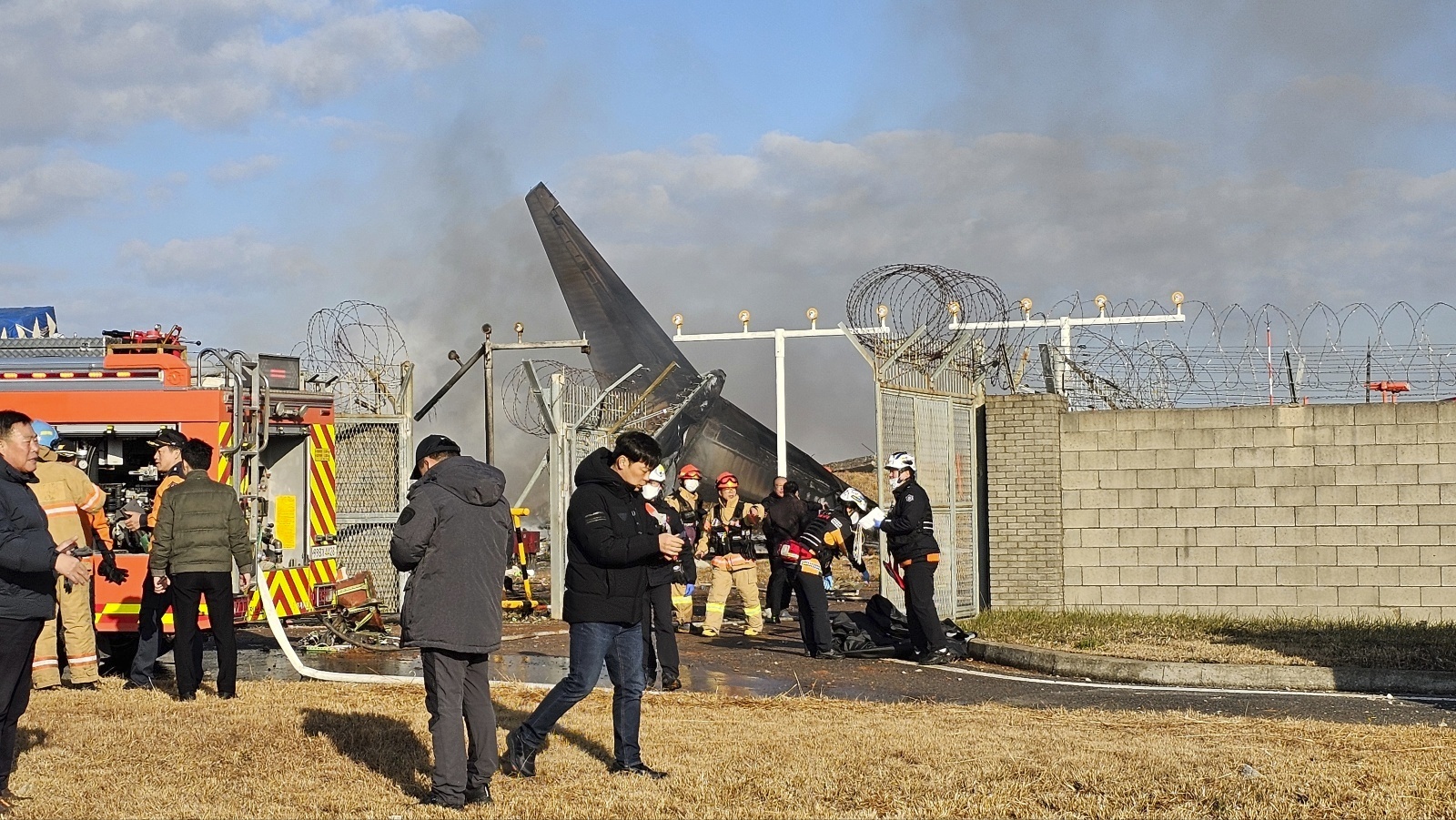The new year had barely dawned, and Kurt Barwis, president of Bristol Hospital and Health Care Group in Connecticut, was on the phone in the emergency room. His back was (literally) against the wall.
It was January 2022, and omicron, a new variant of COVID-19, was evading vaccines and antibodies from prior infections. The virus spread rapidly throughout the United States, overwhelming hospitals—including the small, 154-bed Bristol Hospital.
On this particular night, more than 100 people were waiting for treatment; the line stretched outside into the cold, Barwis told Newsweek. He was calling local hospital CEOs to see if they could take any more patients—while other CEOs were ringing him with the same request.
Meanwhile, more than a dozen patients were needlessly sitting in acute care beds. They had already been treated, and doctors had cleared them to discharge to skilled nursing facilities. But their insurance companies hadn't yet granted the prior authorizations required to transfer.

So they sat and waited. And the people queuing for their spots sat and waited. And Barwis stood against the wall and called other hospitals, where even more people were sitting and waiting.
At Bristol Hospital, omicron exposed how the prior authorization process can delay and disrupt emergent health care operations. And although the consequences aren't always visible to the public, they're an ever-present concern for hospitals nationwide. In a 90-day period, patients with Medicare Advantage plans spent 14,000 unnecessary days in New York hospitals due to discharge delays, the Healthcare Association of New York State reported in 2023.
According to Barwis, working with Medicare Advantage insurance plans is like dealing in the Wild West. And it's gotten exponentially worse since the cowboys started using AI.
Why Does AI Allegedly Target Medicare Advantage?
It's hard to nail down exactly when insurance companies began implementing AI tools; they tend to be vague about internal automation processes. But multiple health care and tech leaders who spoke with Newsweek began noticing accelerated claims denials between 2019 and 2020.
The lawsuits came years later, but in quick succession. In July 2023, Cigna was hit with a class action lawsuit over an algorithm that reportedly rejected more than 300,000 claims in two months—spending about 1.2 seconds on each. A second, similar suit was filed against the company the next month.
In November 2023, a lawsuit against UnitedHealthcare claimed that the company deployed an AI tool developed by NaviHealth (itself an arm of the company's health services business, Optum) to deny care to elderly Medicare Advantage (MA) beneficiaries. Weeks later, Humana was served papers for allegedly utilizing the same NaviHealth tool, which had a known 90 percent error rate, according to the initial lawsuit.
Patients on MA plans are often denied care at above-average rates. Between 2022 and 2023, denials rose more than 20 percent for private, commercial claims and nearly 56 percent for MA claims, the American Hospital Association reported in September. Nearly one in five health systems stopped accepting at least one MA plan last year amid frustrations with prior authorization requirements and rising claims denials, according to a January 2024 survey of health system CFOs from the Healthcare Financial Management Association.
Though the network is starting to thin, more than half of the eligible Medicare population is currently enrolled in a MA plan. Unlike traditional Medicare, MA offers some premium-free plans with out-of-pocket limits and additional benefits like vision and dental. MA members experience 45 percent lower out-of-pocket costs and have a more than 40 percent lower rate of avoidable hospitalizations than original Medicare enrollees, a UnitedHealthcare spokesperson told Newsweek.
Another difference between traditional Medicare and MA is that the latter is covered by private insurance companies. These companies are contracted with the federal government, and receive a monthly sum from the Centers for Medicare and Medicaid Services (CMS) to cover estimated care costs for each beneficiary. CMS generates each individual's risk score using data from traditional Medicare beneficiaries with similar clinical profiles. This informs the pay rate that insurers receive for MA plans, which is adjusted on an annual basis.
These fixed payments motivate MA plans to invest in a beneficiary's health through preventative services and early interventions—at least, that's the idea. Healthier patients are less likely to require expensive medical interventions. If a patient spends less than CMS anticipated based on their profile, the MA plan pockets the rest of the money. On the flip side, if the patient grows sicker and spends more than CMS anticipated, the MA plan must pay the difference.
Enter prior authorization, a cost-control measure used by private insurance companies. At its best, the prior authorization process helps ensure insurance companies are being billed fairly and discourages wasteful spending in the health care system. At its worst, prior authorization can be used to deny or delay pricier treatments, even when a patient's doctor insists upon them.
This can clog the health care system, like Barwis reported at Bristol Hospital. Some patients need a level of care between hospital and home, like a post-acute rehabilitation hospital or a skilled nursing facility. These centers provide more specialized care for conditions that take time to heal: physical therapy to recover from surgery, speech therapy to regain function from a stroke.
However, because of their specialized, live-in nature, these facilities can be expensive. They're often recommended for elderly patients who happen to have Medicare, and some MA plans have been known to stall clearance for post-acute care or outright deny it.
But lately, hospital leaders have noticed an uptick in what they consider unwarranted denials. In September, Newsweek gathered more than 100 physicians and health care executives to discuss AI's impact on doctors—and an increase in claims denials emerged as a concern.
Dr. Eric Williamson, Associate Chair for Radiology Informatics and Supervisor of the Radiology AI Program at Mayo Clinic, called this an "unintended consequence" of AI. While the technology was originally designed to automate administrative tasks and ease the burden on providers, its adoption by insurance companies has created more denied claims, according to Williamson, requiring doctors to spend more time contesting these decisions.
"We know that AI is contributing to an increased number of claims denials, and yet a very high number actually get overturned once they're challenged," Williamson told the audience. "That requires human effort on the part of the provider."
The issue is likely beyond individual physicians' control, Williamson continued: "This is part of a big system that needs to be fixed."
Now, the U.S. Senate agrees.
Senate Calls Out MA Prior Authorization Denials
On October 17, the Senate Permanent Subcommittee on Investigations released a report detailing a MA prior authorization environment that it says "has become not just a bureaucratic maze, but a potential threat to [MA beneficiaries'] health."
Led by Connecticut Senator Richard Blumenthal, the committee obtained more than 280,000 pages of documents from the three largest MA insurers—UnitedHealthcare, Humana and CVS—which together cover nearly 60 percent of MA enrollees.
Between 2019 and 2022, each company denied prior authorization requests for post-acute care facilities significantly more than other requests, according to the report. UnitedHealthcare and CVS denied these requests at triple their overall denial rate in 2022, while Humana's post-acute denial rate was more than 16 times higher than its baseline.
These denials increased as the companies began using predictive technologies like AI to automate the prior authorization process, according to the report. Historically, insurers have staffed physicians to review claims from their peers (in accordance with standards set by the insurers). But with the help of AI models, insurers can shorten or even bypass the human review process, leading to higher profits from increased denials and reduced labor spend.
Insurance companies generally argue that AI is not used to replace humans, but to reduce administrative burdens and improve efficiency. When Newsweek first asked UnitedHealthcare to elaborate on its AI use, the company pointed to a webpage that says, "AI and [machine learning models] are used safely and responsibly to enable and support—but not replace—critical human decision-making."
However, the subcommittee suggested that in some cases, when stacked against AI models that are generating such significant cost savings, human reviewers could be pressured to follow the predictive technologies' recommendations.
The Senate subcommittee also said insurance companies have intentionally used algorithms to deny care and drive down costs—UnitedHealthcare included.
In 2019—the year before Optum acquired tech company NaviHealth—UnitedHealthcare denied 1.4 percent of MA beneficiaries' claims for admission to skilled nursing facilities, according to the report. In 2022—the first full year that NaviHealth was managing MA claims for UnitedHealthcare—the denial rate was reportedly 12.6 percent, or nine times higher than before the company acquired NaviHealth.

A spokesperson for UnitedHealthcare denied the report's assertions, and said only a "small fraction" of Medicare claims require prior authorization at all.
Although 99 percent of Medicare Advantage enrollees are required to obtain prior authorization for some services, those services are usually expensive ones that are requested less frequently (like stays at skilled nursing facilities or chemotherapy), according to the health policy and research organization KFF. In 2022, there were 1.7 prior authorization requests per MA enrollee.
"This report inaccurately represents how automation is used in decision making—we do not use ANY algorithmic tools to make adverse coverage determinations for post-acute care," the UnitedHealthcare spokesperson said over email.
Humana has also contracted with NaviHealth since 2017, but the Senate subcommittee could not determine whether predictive technologies drove the 54 percent increase in its denial rates for long-term acute care hospital stays from 2020 to 2022. However, the subcommittee did identify such long-term admissions as a cost concern for the company. A spokesperson for Humana did not return Newsweek's requests for comment.
CVS—which provides MA coverage through its subsidiary, Aetna—has been refining its automation capabilities for years, the report said. According to a 2019 internal presentation obtained by the Senate subcommittee, a model designed to predict the probability of approval for inpatient authorizations was calibrated and tested at two levels. One level would "maximize savings," while the other would "maximize auto-approvals."
When the model-in-training analyzed past requests from MA beneficiaries, its "maximize savings" function produced a net savings of $3.6 million, while its "maximize auto-approvals" function produced a net loss of $400,000.
The model wasn't used to make care decisions during the Senate report's time frame, between 2019 and 2022, and was only applied to skilled nursing facilities when implemented in May 2023. However, the 2019 presentation said it was a "key priority" to build a "separate model" for post-acute prior authorization requests, according to the report. A different presentation later that month suggested an auto-approval rate of more than 12 percent for the company's overall MA division, and 2 percent for MA post-acute care.
According to the Senate report, the documents suggest that by the end of 2019, CVS "was calibrating its automation strategy to prevent approvals of cases it felt ought to be denied."
A CVS Health spokesperson told Newsweek via email that the report "significantly misrepresents" the company's use of prior authorization, and that "many" of the documents included were drafts, not indicative of final decisions. The insurer is frequently audited by CMS, according to the spokesperson (as are its competitors).
But some of these technologies did make it to prime time. In mid-2021, CVS launched its AI-powered Post-Acute Analytics initiative, with the goal of "optimizing [skilled nursing facility] utilization." The initiative began in two states' MA plans, but by the end of 2022, it was approved in 16 states, according to the report. Initially, it was slated to save $10 to $15 million over three years, but by November 2021, projections had skyrocketed to $77.3 million in savings.
Post-Acute Analytics (PAA), the vendor responsible for this AI tool, responded to the report on its website, alleging the Senate subcommittee "mistakenly" attributed increased prior authorization denials to its Anna software. The vendor claimed that PAA software was "never" used to make prior authorization recommendations or deny skilled nursing facility requests.
Elaborating on its processes, PAA said its AI tools accelerate approvals, enhance compliance and reduce administrative burden. "We focus on approvals, not denials," PAA said.
But a CVS document obtained by the Senate listed "medical cost savings" as the "value driver" for Post-Acute Analytics. Five other initiatives were listed in the same table, each with a value driver of "admin cost savings" or "admin & medical cost savings." Although PAA claims to reduce administrative burden and emphasize approvals, it was the only initiative on the document that CVS did not identify as an administrative cost saver.
Newsweek reached out to PAA and asked about this discrepancy. The company has not responded to Newsweek's questions.
Can Hospitals Fight Rising Claims Denials?
The Senate subcommittee recommended that CMS start collecting prior authorization information broken down by service category to see if any are being "singled out" for denials, and to conduct targeted audits if insurer data reveals notable increases in adverse denials. It also suggested CMS expand regulations for predictive technology use—for example, requiring that MA insurers disclose how these tools are used in the prior authorization process and developing rules to ensure they don't sway physicians' opinions.
In an October 2 conversation with Newsweek, Chandler Barron, president of Parathon (a revenue cycle management vendor that provides denials management services to health systems), suggested that more clarity on the insurance companies' algorithms could be useful. Today, there's little transparency about how AI is being used to deny claims. If health systems could see the AI model's scorecards, at least they'd know what they're up against, according to Barron.
"It's like all of a sudden, the language has changed on them, and there's no interpreter anywhere close," Barron said.
But even with improved transparency, most hospitals don't have the resources to interpret that information, according to Barron. They're already spending about $19.7 billion a year arguing with insurers about denied claims, health care consultant Premier estimated in March.
Oftentimes, there are more people on the administrative side of the hospital than on the care delivery side, Dr. Michael Gao—who led NewYork-Presbyterian's AI strategy as medical director for transformation before founding his own AI company, SmarterDx, in 2020—told Newsweek. When clinicians are swept into work that doesn't face patients, it accentuates the shortage of medical workers, according to Gao.
On October 28, SmarterDx announced a new tool that can scan denied claims and produce comprehensive appeal letters, including clinical evidence and coding references. The tool was piloted for inpatient care at three hospitals, and reportedly cut the time it takes to craft an appeal letter from roughly an hour to about five minutes.
"We want all of our doctors and nurses to be treating patients, not writing appeal letters," Gao said.

But not every hospital can afford to fight AI with AI, according to Barwis, Bristol Hospital's president who also serves on the American Hospital Association's Board of Trustees. Bristol Hospital pays physician advisers to dispute denials, but isn't compensated by insurers for that administrative load. Without the extra resources of a big health system, such cost pressures can force community and rural hospitals into consolidation.
Most insurance companies are for-profit entities with shareholders and investors who incentivize them to produce a return. It doesn't cost them anything to deny a claim, but hospitals must expend significant resources to fight back, health care leaders told Newsweek. Sometimes, the burden of denials is so large that hospitals must pick and choose which ones to fight—accepting that they won't be reimbursed by insurers for some of the care that they have provided.
In some of these cases, Dr. Joe Evans, chief medical information officer at Virginia-based health system Sentara Health, believes AI could actually help. If utilized fairly, automatic approvals could allow patients and providers to make informed decisions about their care while they're still in the same room. For example, a patient who needs a CT scan and is automatically approved could schedule that appointment before leaving the office.
There's "great opportunity" for some algorithmic approvals, where models could give green lights to all claims that meet certain criteria, Evans said.
But, as the Senate subcommittee found, auto-approval models are significantly less profitable.
Against Doctor's Orders
Unlike insurance companies, hospitals bear the immediate burden of patients' safety. When patients sit in the hospital unnecessarily, they increase their risk of a fall or hospital-acquired infection. Still, hospitals cannot release patients without a safe discharge plan.
Sometimes, denied claims make patients sicker, Barwis said. For the cancer center's MA patients, the average time from clinical diagnosis to treatment has more than doubled over the past two years. It can take up to a month for patients to get the treatment they need as their doctors work to obtain approval. Patients' conditions can worsen during that time, leading to more expensive ER and hospital visits.
After reading the Senate subcommittee's report, Barwis is concerned about savvy tech being used to maximize denials.
"The sophistication that's being utilized, it's shameful," he said. "It is absolutely shameful."




















 English (US) ·
English (US) ·